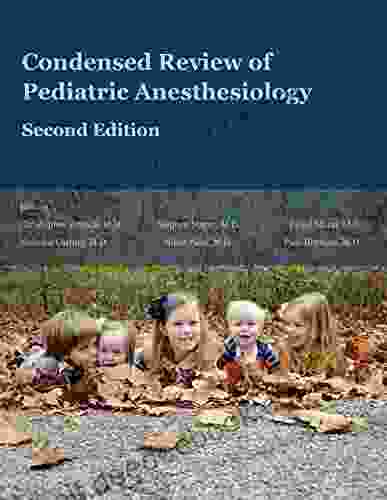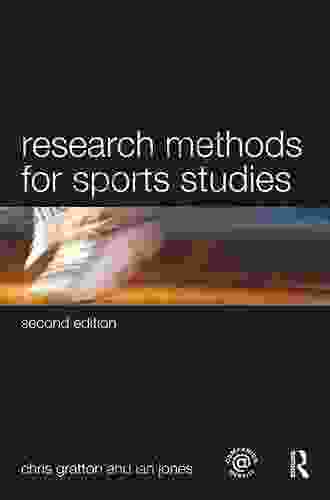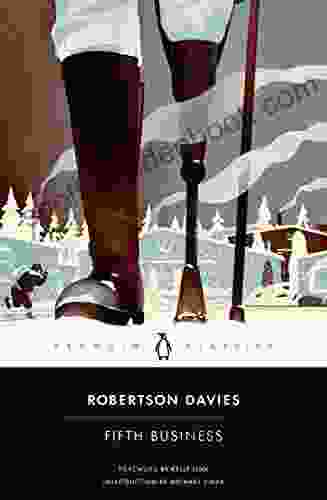Research Methods For Sports Studies: A Comprehensive Guide

4 out of 5
| Language | : | English |
| File size | : | 7673 KB |
| Text-to-Speech | : | Enabled |
| Screen Reader | : | Supported |
| Enhanced typesetting | : | Enabled |
| Word Wise | : | Enabled |
| Print length | : | 384 pages |
| Hardcover | : | 234 pages |
| Item Weight | : | 1.19 pounds |
| Dimensions | : | 6.85 x 9.69 inches |
In the field of sports studies, rigorous research methods are essential for investigating various aspects of sports, including performance, physiology, psychology, coaching, and social impact. This article aims to provide a comprehensive overview of key research methods employed in sports studies, encompassing both quantitative and qualitative approaches, as well as mixed methods designs.
Quantitative Research Methods
Quantitative research methods emphasize numerical data collection and statistical analysis to test hypotheses and uncover patterns within a large sample size. Some common quantitative methods include:
- Surveys: Structured questionnaires used to gather data from a large number of participants on their attitudes, opinions, or experiences.
- Experiments: Controlled studies where researchers manipulate independent variables to observe their impact on dependent variables.
- Observational studies: Non-interventional studies that involve observing and recording data on individuals without manipulating any variables.
- Meta-analyses: Statistical techniques that combine the findings of multiple studies to draw overall s.
Qualitative Research Methods
Qualitative research methods prioritize in-depth understanding and interpretation of experiences, beliefs, and meanings in a small sample. Common qualitative methods include:
- Interviews: In-depth conversations with individuals to gather their perspectives and insights.
- Focus groups: Group discussions that explore shared experiences, opinions, and ideas.
- Ethnography: Observing and participating in a social or cultural setting to gain a holistic understanding of its dynamics.
- Phenomenology: Exploring the subjective lived experiences of individuals.
Mixed Methods Research
Mixed methods research combines both quantitative and qualitative approaches to complement each other and provide a more comprehensive understanding of a research question. It can involve:
- Exploratory sequential design: Using qualitative methods to explore a topic and then using quantitative methods to test specific hypotheses.
- Confirmatory sequential design: Using quantitative methods to test hypotheses and then using qualitative methods to explain or interpret the findings.
- Concurrent triangulation design: Simultaneously collecting and analyzing both quantitative and qualitative data to enhance understanding.
Choosing the Appropriate Method
The choice of research method depends on several factors, including the research question, study design, sample size, and available resources. Researchers should consider:
- Research question: Quantitative methods are suitable for testing hypotheses, while qualitative methods are better for exploring subjective experiences.
- Study design: Experiments and observational studies require strict control, while qualitative methods offer more flexibility.
- Sample size: Quantitative methods typically require larger samples than qualitative methods.
- Resources: Both quantitative and qualitative research require time, effort, and funding.
Data Collection and Analysis
Effective research methods involve rigorous data collection and analysis. For quantitative data, statistical software packages can be used to analyze surveys, experiments, and observational studies. Qualitative data analysis techniques include thematic analysis, grounded theory, and discourse analysis.
Ethical Considerations
All research involving human participants must adhere to ethical principles. Researchers should obtain informed consent, protect confidentiality, and ensure participants' well-being.
Research methods in sports studies provide a systematic and rigorous approach to investigating various aspects of sports. By comprehending the strengths and limitations of different methods, researchers can design and conduct studies that generate valuable insights and contribute to the field's knowledge base. Choosing the appropriate method, ensuring data quality, and adhering to ethical principles are essential for producing high-quality research in sports studies.
References
- Cresswell, J. W. (2014). Research design: Qualitative, quantitative, and mixed methods approaches (4th ed.). Sage.
- Denzin, N. K., & Lincoln, Y. S. (2018). Handbook of qualitative research (5th ed.). Sage.
- Punch, K. F. (2014). to research methods in education (7th ed.). Sage.
- Shenton, A. K. (2004). Strategies for ensuring trustworthiness in qualitative research projects. Education for Information, 22(2),63-75.
4 out of 5
| Language | : | English |
| File size | : | 7673 KB |
| Text-to-Speech | : | Enabled |
| Screen Reader | : | Supported |
| Enhanced typesetting | : | Enabled |
| Word Wise | : | Enabled |
| Print length | : | 384 pages |
| Hardcover | : | 234 pages |
| Item Weight | : | 1.19 pounds |
| Dimensions | : | 6.85 x 9.69 inches |
Do you want to contribute by writing guest posts on this blog?
Please contact us and send us a resume of previous articles that you have written.
 Novel
Novel Page
Page Chapter
Chapter Story
Story Genre
Genre Reader
Reader Library
Library Paperback
Paperback E-book
E-book Sentence
Sentence Bookmark
Bookmark Glossary
Glossary Bibliography
Bibliography Synopsis
Synopsis Footnote
Footnote Codex
Codex Bestseller
Bestseller Classics
Classics Library card
Library card Narrative
Narrative Biography
Biography Autobiography
Autobiography Memoir
Memoir Dictionary
Dictionary Character
Character Resolution
Resolution Stacks
Stacks Periodicals
Periodicals Lending
Lending Reserve
Reserve Academic
Academic Journals
Journals Reading Room
Reading Room Interlibrary
Interlibrary Study Group
Study Group Thesis
Thesis Storytelling
Storytelling Awards
Awards Book Club
Book Club Textbooks
Textbooks John U Bacon
John U Bacon Audrey Couloumbis
Audrey Couloumbis William Davies
William Davies Connell Barrett
Connell Barrett Nicole French
Nicole French Cristiano Nogueira
Cristiano Nogueira Marcelo S Perlin
Marcelo S Perlin Jonathan D Pollack
Jonathan D Pollack Jeffry A Frieden
Jeffry A Frieden Nick Mcdonell
Nick Mcdonell John Agard
John Agard Frye Gaillard
Frye Gaillard Ian Jones
Ian Jones E N Brandt
E N Brandt Paula Pritchard
Paula Pritchard Sue Nicholson
Sue Nicholson Peter Franz
Peter Franz Joseph Cermatori
Joseph Cermatori C Larene Hall
C Larene Hall Sheila Cole
Sheila Cole
Light bulbAdvertise smarter! Our strategic ad space ensures maximum exposure. Reserve your spot today!

 Thomas HardyEnchanted Passage: A Civil War Time Travel Adventure in Sutton, Massachusetts
Thomas HardyEnchanted Passage: A Civil War Time Travel Adventure in Sutton, Massachusetts Forrest BlairFollow ·19.4k
Forrest BlairFollow ·19.4k Danny SimmonsFollow ·7.2k
Danny SimmonsFollow ·7.2k Isaac BellFollow ·10.4k
Isaac BellFollow ·10.4k Colby CoxFollow ·5.9k
Colby CoxFollow ·5.9k Elton HayesFollow ·14.3k
Elton HayesFollow ·14.3k F. Scott FitzgeraldFollow ·8k
F. Scott FitzgeraldFollow ·8k Arthur C. ClarkeFollow ·8.6k
Arthur C. ClarkeFollow ·8.6k Preston SimmonsFollow ·16.6k
Preston SimmonsFollow ·16.6k

 Beau Carter
Beau CarterLater Political Writings: A Window into the Evolution of...
Political thought, like...

 Tyrone Powell
Tyrone PowellThe Essential Guide to Family School Partnerships:...
: The Importance of...

 Christian Barnes
Christian BarnesAdvancing Folkloristics: Conversations with Jesse...
Dr. Jesse Fivecoate is an...

 Jake Carter
Jake CarterHal Leonard DJ Method Connell Barrett: A Comprehensive...
Are you ready...

 John Updike
John UpdikeCondensed Review of Pediatric Anesthesiology Second...
Condensed Review of...

 Guillermo Blair
Guillermo BlairExploring the Complexities of Motherhood and Identity: A...
Elena Ferrante's "The Lost...
4 out of 5
| Language | : | English |
| File size | : | 7673 KB |
| Text-to-Speech | : | Enabled |
| Screen Reader | : | Supported |
| Enhanced typesetting | : | Enabled |
| Word Wise | : | Enabled |
| Print length | : | 384 pages |
| Hardcover | : | 234 pages |
| Item Weight | : | 1.19 pounds |
| Dimensions | : | 6.85 x 9.69 inches |










